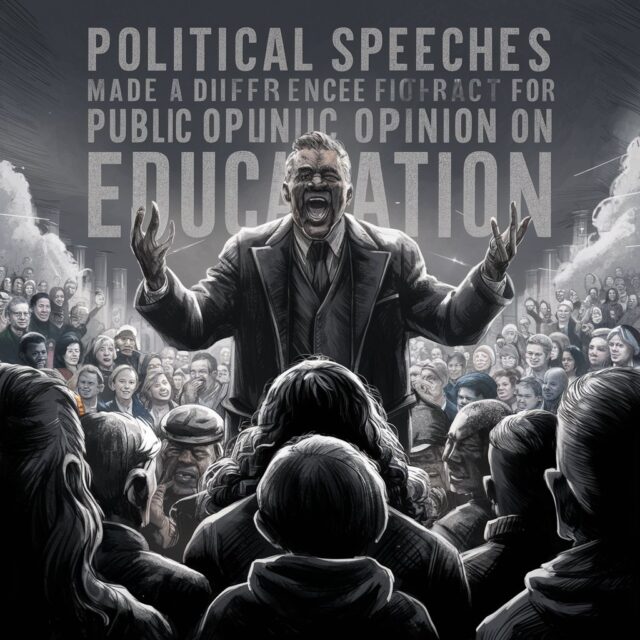The political rhetoric of today has a strong influence in defining public attitudes toward education implying the perceptions, beliefs and the priorities around educational policy, research and reforms. Politicians, especially polymakers, use words in a clever way to bring out education topics, reach out to electorates and execute their plans, whereby persuasive language is employed in order to ensure the support of the masses, shape the public opinions and craft the public policy outcomes.
Politics shapes opinions by way of the selective way through which leaders and the media “frame” or cast issues. Politicians employ framing strategies in order to write the narrative of the debate and move focus to the certain key details. They also have the ability to generate emotional reactions in the general public. As politics often accompanies a discourse, an example would be politicians putting education in a different light – where it would be either a national security issue, competitiveness in the economy or a social justice.
In addition, political discourse is capable of positioning education stakeholders as positive actors or perpetuating artificial biases towards educators, administrators, unions and interest groups. Politicians use the language they usually speak to attract public attention or criticism. They will be sung for or condemned as heroes or villains in the education narrative. For instance, politicians may put teachers on a pedestal as valiant people who are worthy of admiration and assistance or attack teacher unions as an anti-development force that disables educational progress.
The rhetoric of political figures not only affect the public opinions about specific education policies, but also relate to standardized testing, school choice, and teachers’ assessment. Politicians make use of persuasive speech to attract the attention of voters and sell their educational plans as measures to solve actual educational dilemmas while appealing to rational elements such as abiding by standards, choice and excellence. Furthermore, they very much rely on sophistry to propel their views by portraying opponents and their opponents’ policies as controversial and unworthy of sound thinking.
In addition, the role of political speech could form the basis of people’s views to the logic and the essence of education, which, in turn, reflect on how money is spent, what topics are covered and what the expected results may be. Politician opt for words to voice their ideas and ideals. They may give education as an investment in the capital of people, or as a way of the human reach of a better life, or as an ethical matter to resolve the social justice. By the means of politics the politicians limit education framed in one or more words to influence public support for funding initiatives, curriculum reforms and other policy issues.
Finally, there is a considerable political rhetoric that imposes a strong influence on users’ attitudes towards education, it impels an appeal to beliefs and perceptions concerning educational policies, funding, and reform. They can, through learning the intricacies of the argumentation used by political figures, and developing the skills to analyze the thinking on education problems, make decisions and stress for setting up policies that truly represent their values or priorities.












